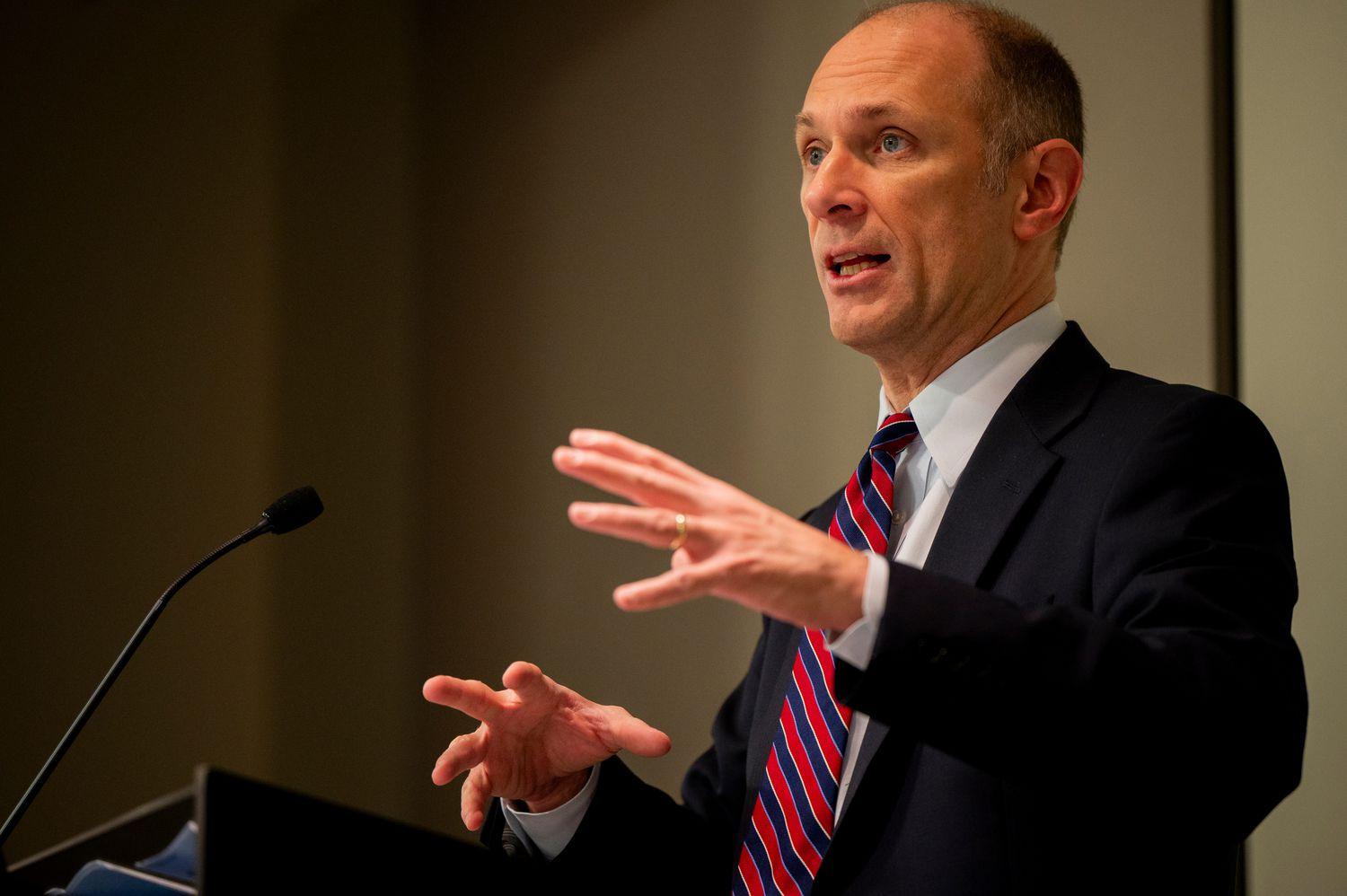Goolsbee: FOMC Ready to Act if Economy Deteriorates
Chicago Federal Reserve President Goolsbee stated that the Fed will respond to signs of economic weakness and hinted that current interest rates might be too tight.

Chicago Federal Reserve President Austan Goolsbee stated that the Fed will respond to signs of economic weakness and hinted that current interest rates might be too tight.
When asked whether the softness in the labor market and manufacturing would prompt the Fed to take action, Goolsbee did not commit to specific measures but indicated that if the economy is weakening, a tight stance would no longer be maintained.
Goolsbee emphasized, “When employment data is weaker than expected but no recession signs are evident, it is indeed worth considering the economic trajectory before making decisions. If overall conditions begin to deteriorate, affecting employment, price stability, or financial stability, measures will be taken to address it.”
During an interview, global markets experienced a black Monday, with the U.S. stock market also falling sharply. The three major indices opened significantly lower, with the S&P 500 down 4.2% and the Nasdaq down 6%. Star tech stocks fell, with Nvidia dropping 13% and its share price falling below $100.
Last week, the Fed kept interest rates unchanged, with Fed Chair Jerome Powell stating that he needs more data to justify a rate cut.
However, the employment report released last Friday showed multiple signs of weakness: 114,000 new jobs in July, below expectations; and revisions downward in previous months’ job additions.
Additionally, the unemployment rate rose to 4.3%, triggering the Sam Rule, indicating that the U.S. economy may be in recession, heightening concerns. The rule states that when the three-month moving average of the U.S. unemployment rate rebounds more than 0.5% from its lowest point in the past 12 months, a recession may begin to appear.
There are growing concerns that the Fed's actions may be lagging, which is one of the main reasons for the global market crash, with many investors hoping that the Fed will take action, believing that everything will improve once the Fed steps in.
However, Goolsbee reiterated that the Fed’s job is not to react to a month of weak labor data and emphasized that the margin of error in monthly employment data is 100,000, so one should not rush to conclusions. When asked about the market’s call for an emergency rate cut, he stated that both rate hikes and cuts are options, and if the economy worsens, the Fed will take measures to address it.
He added that when discussing whether to lower the policy tightness, future potential measures are not excluded as the Fed still needs more information to make decisions. However, if the economy is not overheating, there should be no continuation of tightening or restrictive measures.
HQ Trust Chief Investment Officer Christian Soubry expects that the Fed will not cut rates before the September meeting, but officials' statements may become more dovish, helping to soothe the market. Weak data does not necessarily indicate a hard landing for the economy, and if necessary, the Fed has enough room to further lower rates.
Wharton School Professor Jeremy Siegel believes the Fed should urgently cut rates by 75 basis points now and then cut rates by another 75 basis points in the September meeting. He predicts that if the Fed does not urgently cut rates before the September meeting, the market will react severely.
Disclaimer: The views in this article are from the original Creator and do not represent the views or position of Hawk Insight. The content of the article is for reference, communication and learning only, and does not constitute investment advice. If it involves copyright issues, please contact us for deletion.